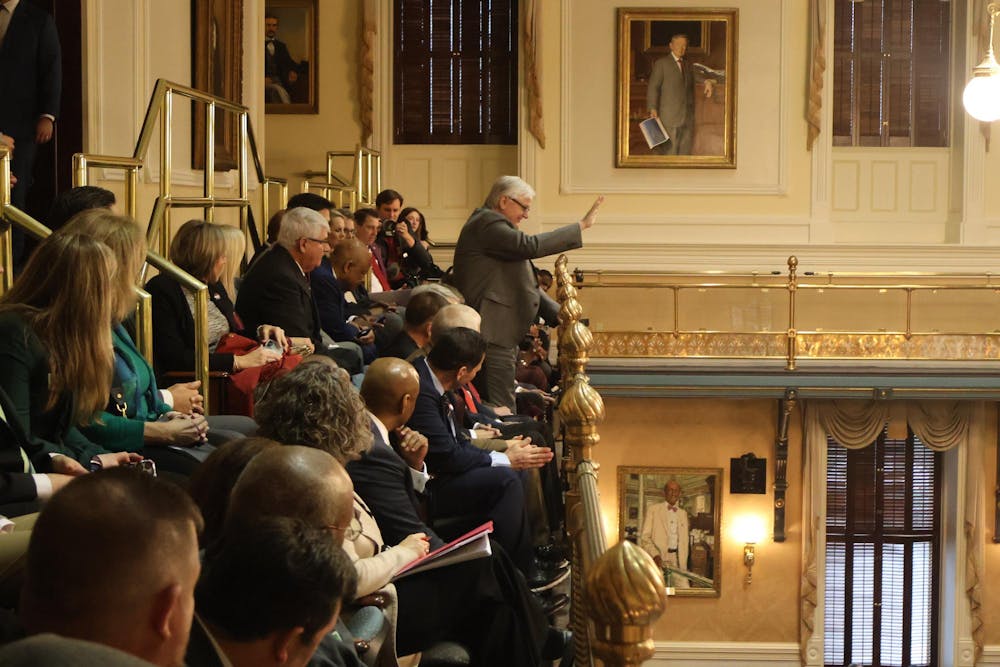University of South Carolina students, faculty and alumni gathered at the Statehouse on Feb. 11 for USC’s annual Carolina Day.
Each year the university sends representatives to the Statehouse to express how state support benefits the university and its students. USC student advocates used the opportunity to explain student issues to lawmakers, such as student housing costs and student retention.
Prior to visiting the Statehouse, USC President Michael Amiridis gave an address on the significance of the day.
“It's a very important day today for our entire system and for all of our universities in the USC system because it's a unique opportunity that we have to highlight our impact across the entire state,” Amiridis said in the address.
At the Statehouse, resolutions were read to lawmakers by Rep. James Rutherford (D-74) and Sen. Ronnie Cromer (R-18).
The resolutions described USC’s economic and research benefits for the state and the benefits of state support for the university. They also asked that Feb. 11, 2025, be declared “Carolina Day”.
Tuition mitigation funding is an important topic to address to lawmakers, Amiridis said. The funding helps support a tuition freeze at the university, he said.
“A number of these students may not be able to come if we would continue the increase in terms of the tuition,” Amiridis said. “So it's very critical. For me, it's a number one priority.”
A group of students met with lawmakers from their home districts to discuss issues pertaining to USC students.
Second-year political science student Kaleelah El-Amin advocated to her representative about student retention.
“We're advocating for student retention and keeping people here in Columbia after they graduate, for grad school, higher education, workforce and jobs,” El-Amin said.
Joesph Von Nessen, a research economist at the Darla Moore School of Business, gave a talk at a luncheon about the economic impact of the university on the state as part of Carolina Day.
Von Nessen conducted a study compiling the economic impacts of the university in January. His study found that a 1% increase in graduate retention in the state could provide $18.8 million in new economic activity in the Midlands region.
Second-year business management student Bryce Graham spoke to the representative from his home county, Horry County. Graham advocated for improved game day infrastructure, including additional sidewalks and pedestrian safety measures around Williams-Brice Stadium.
Students advocated for improvements in off-campus student housing as well. Third-year political science student Mel Calixte expressed to her representative USC student’s concerns about the cost and safety of off-campus student housing, she said.
First-year international studies student, Eva Burba, said she thanked representatives and senators for their support. She and Student Government’s state advocacy group, The Legislative Action Network, plan to return to the Statehouse to discuss student’s issues with the SNAP program, Burba said.
“They're not being covered by those benefits,” Burba said. “So we just want to increase awareness and mandate a report that can help these students get their basic needs met.”
Parts of the USC Next master plan require state funding, Amiridis said. The university plans to ask legislators for funding for the STEM Research and Innovation Building in the near future, Amiridis said.
USC’s planned neurological hospital and its benefits to the state were explained to legislators in the resolutions. The hospital is the university’s “number one priority" and will help relieve a physician shortage in the state, Amiridis said.
"It will help us educate physicians, educate practitioners from public health, nurses, in a unique way, and also advance neurological sciences during this time," Amiridis said.

